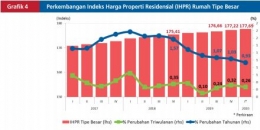Although we have understood how bad acts of deviance are, it is important to remember that not all deviant acts produce long-term negative outcomes. In sociology, deviances are classified into primary and secondary deviance. The former is a deviant act that receives little social reaction or mild, corrective reaction. The latter, by contrast, is a deviant behavior that results from a stigmatized sense of self that aligns with society's concept of a deviant. In other words, it's a deviant behavior that results from being labeled as a deviant by society.
Furthermore, if a primary deviance is being tolerated by the society continually, it can be a secondary deviance or “more tolerable crimes”. Edwin M. Lemert, a sociologist, emphasizes that the transition from primary to secondary deviance represents a process of development. Increasingly stronger deviance is followed by ever stronger social reactions, which ensure that deviance solidifies.
People’s Power on Economics
In economics, we face some plural problems such as inequality, poverty, unemployment, workforce discrimination and many others. Even though they are caused by various variables, pluralistic ignorance still has a big role whether to make things worse or fix them up.


For example, the high price of housing in Indonesia decreases the ability of people with low income to afford a house. High rates of real estate inflation are also triggered by a widely-known assumption that buying real estate is the most profitable investment. This imposes pluralistic ignorance towards those with low income who need housing to survive rather than to gain profit and accumulate wealth.
Even worse, the ongoing situation has inflated prices of small medium houses, which are segmented for low-income society, at a much higher rate than that of big houses. At a high loan interest rates of 8.92%, more than 74% of real estate buyers are still willing to select a bank loan as an option to afford a house. This is not including additional floating interest rates and other expenses. It shows how high the demand for real estate is and how this situation greatly harms people with low income.
As for the case of these collective problems, the government has the responsibility to solve them. For inequality, left wing and right wing populist leaders have come up with different kinds of solutions. Right wing populism is dominated by repatriated offshore funds. Left wing populism, on the other hand, is characterized by redistribute ownership and wealth from “The 1%” to common people.
However, the government certainly can’t stand alone in solving all of the problems that we face. In fact, small and medium enterprises absorb 97% of Indonesia’s workforce. Private sector also has an obligation to our society that can be manifested through the so-called corporate social responsibility funds (CSR). Moreover, the mass media also has the power to spread social concern by influencing people and they should utilize that power for good causes like solving pluralistic ignorance. Therefore, pluralistic ignorance on the private sector and society must be reduced as they hold one of the most important roles of human civilization.
By: Fariz Raffandi Marzuki | Ilmu Ekonomi 2019 | Staff Kajian Kanopi FEB UI 2020
References without hyperlink









